Finding the Right Bird Perches for Parrots and Feathered Friends
Worried about your bird's health and well-being? In this blog, we are going to show you the best way to find the perfect perch for your feathered friend.
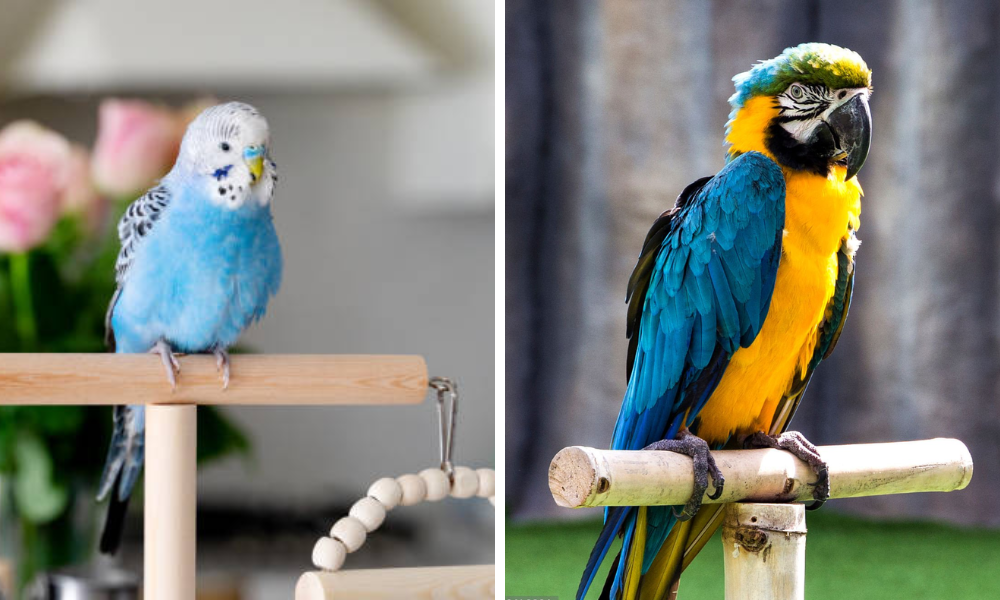
Key Takeaways:
- Choosing the right bird perches for parrots is crucial for their health and happiness.
- Natural perches are often the best choice, providing a variety of textures and diameters.
- Regularly inspecting and replacing perches can prevent foot sores and other health issues.
Understanding the Importance of Bird Perches
Bird perches for parrots are not just simple accessories; they are essential for the well-being of your pet birds. Parrots spend a significant amount of time on their perches, using them to stand, rest, and play. The right perches can help maintain healthy feet and beaks, while the wrong ones can lead to problems like foot sores and overgrown nails.
When choosing perches, consider the natural habits of parrots. In the wild, they perch on branches of varying sizes and textures. Mimicking this natural environment in their cage can make a big difference in their overall health and happiness. Natural perches, such as those made from wood or cotton, are often the best choice.
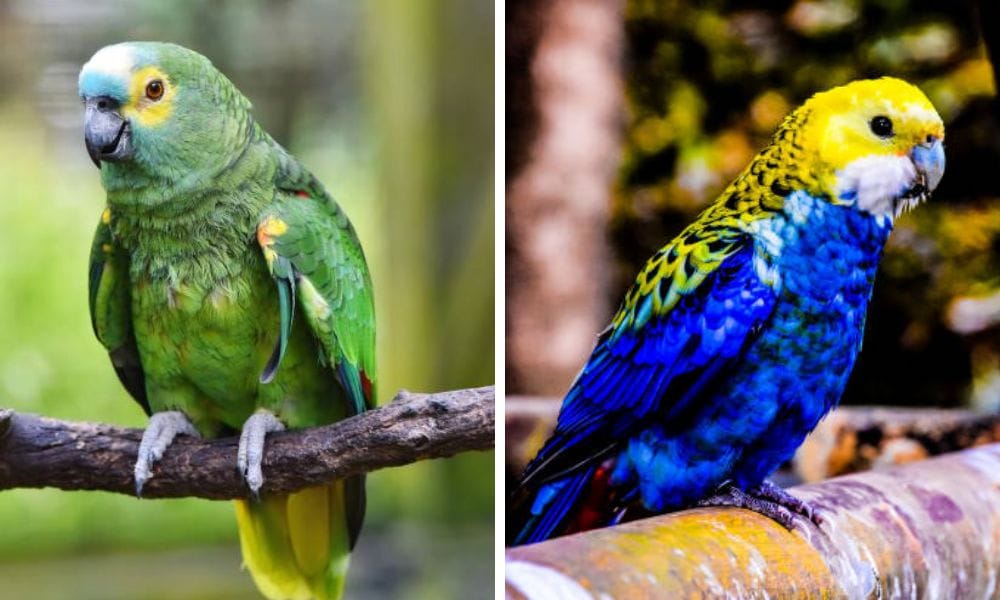
Types of Bird Perches
There are several types of bird perches available on the market, each with its own benefits. Natural wood perches are a popular option because they provide a variety of textures and diameters, which can help keep your parrot's feet healthy. Cotton rope perches are soft and flexible, making them a comfortable place for your bird to rest.
Swings and toys can also serve as perches, adding an element of fun to your parrot's cage. These perches can help keep your bird entertained and active, which is important for their mental and physical health. When choosing perches, it's important to consider the size and species of your parrot. For example, cockatiels and parakeets may prefer smaller perches, while larger parrots like conures may need thicker, more robust options.
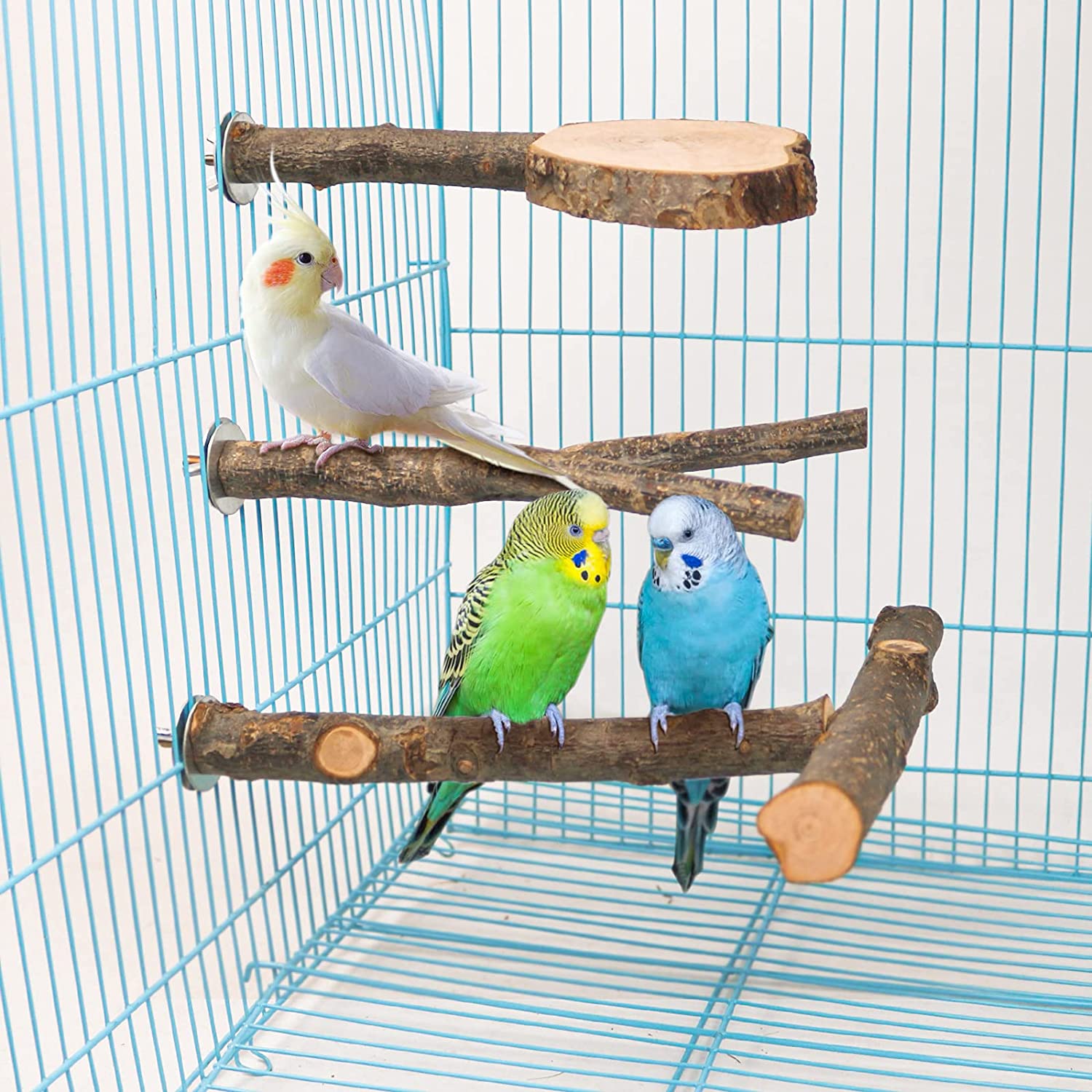
Choosing the Right Size and Shape
The size and shape of the perches you choose are crucial for your parrot's comfort and health. Perches that are too small can cause foot problems, while those that are too large can be difficult for your bird to grip. A variety of diameters is ideal, as it mimics the natural environment and helps keep your parrot's feet in good condition.
When selecting perches, consider the diameter of your parrot's feet. A good rule of thumb is to choose perches that allow your bird's toes to wrap around about two-thirds of the way. This ensures a comfortable grip and helps prevent foot sores. Additionally, offering perches of different shapes and textures can provide mental stimulation and keep your parrot engaged.
The Benefits of Natural Perches
Natural perches, such as those made from wood, offer several benefits for your parrot. They provide a variety of textures and diameters, which can help keep your bird's feet healthy and prevent overgrown nails. Natural wood perches also encourage natural chewing behavior, which can help keep your parrot's beak in good condition.
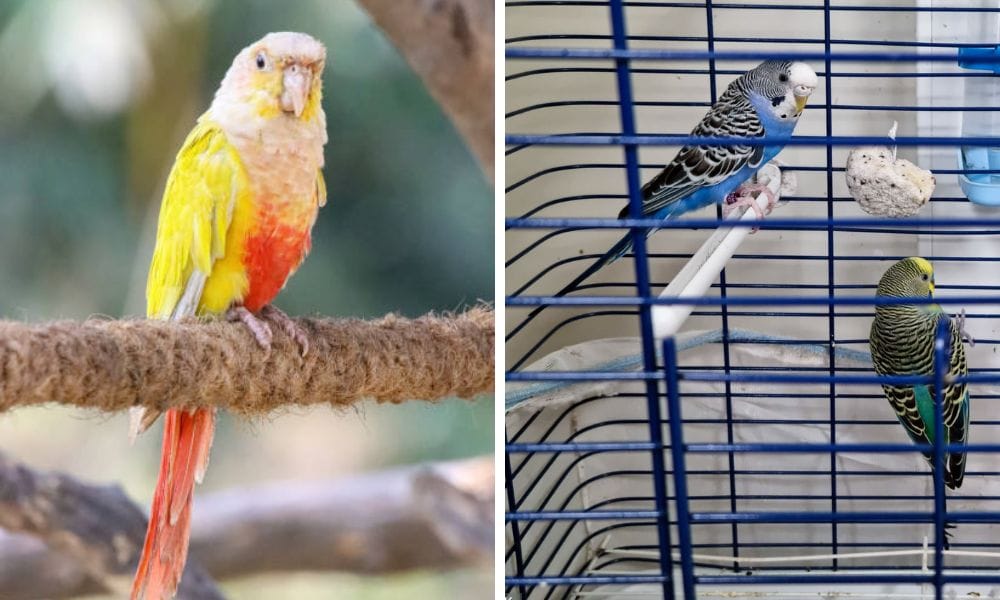
Cotton rope perches are another great option, as they are soft and flexible, providing a comfortable place for your bird to rest. These perches can also be easily replaced when they become worn or dirty. When choosing natural perches, it's important to ensure they are safe for your bird. Avoid perches made from toxic woods or those treated with chemicals.
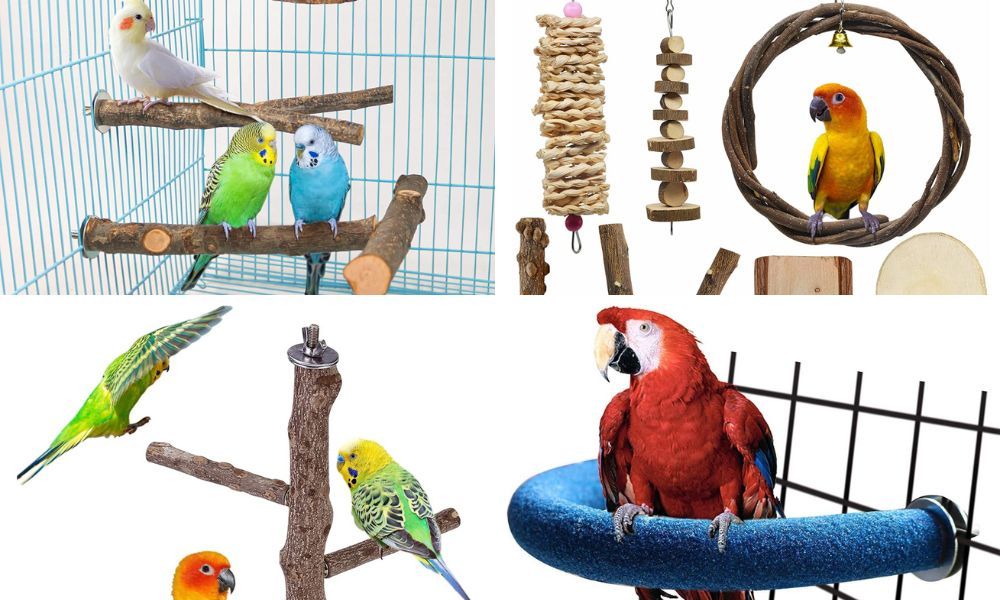
Inspecting and Replacing Perches
Regularly inspecting and replacing your bird's perches is essential for maintaining their health. Over time, perches can become worn or dirty, which can lead to foot sores and other health issues. It's important to check your bird's perches regularly and replace them as needed.
When inspecting perches, look for signs of wear and tear, such as cracks or splinters. These can cause injuries to your bird's feet and should be replaced immediately. Additionally, make sure to clean perches regularly to prevent the buildup of bacteria and other harmful substances. By keeping your bird's perches in good condition, you can help ensure their health and happiness.
Creating a Comfortable Environment
Creating a comfortable environment for your parrot involves more than just choosing the right perches. It's important to provide a variety of perches, toys, and other accessories to keep your bird entertained and engaged. This can help prevent boredom and encourage natural behaviors, such as climbing and chewing.
When setting up your parrot's cage, consider the placement of perches and other accessories. Make sure there is enough space for your bird to move around comfortably and that perches are placed at different heights to encourage climbing. Additionally, provide a variety of textures and shapes to keep your bird's feet healthy and engaged.
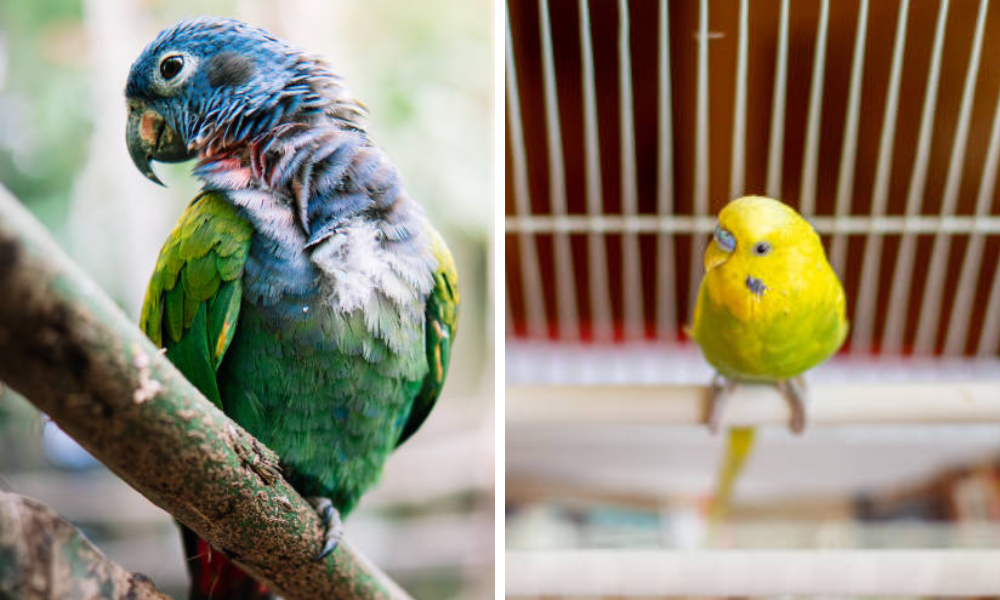
Preventing Foot Sores and Other Health Issues
Foot sores and other health issues can be a common problem for parrots, especially if they spend a lot of time on the same type of perch. To prevent these issues, it's important to provide a variety of perches with different textures and diameters. This can help distribute the pressure on your bird's feet and prevent sores from developing.
Regularly inspecting your bird's feet can also help catch any potential issues early. Look for signs of redness, swelling, or sores, and consult with a veterinarian if you notice any problems. By providing a variety of perches and regularly checking your bird's feet, you can help ensure their health and well-being.
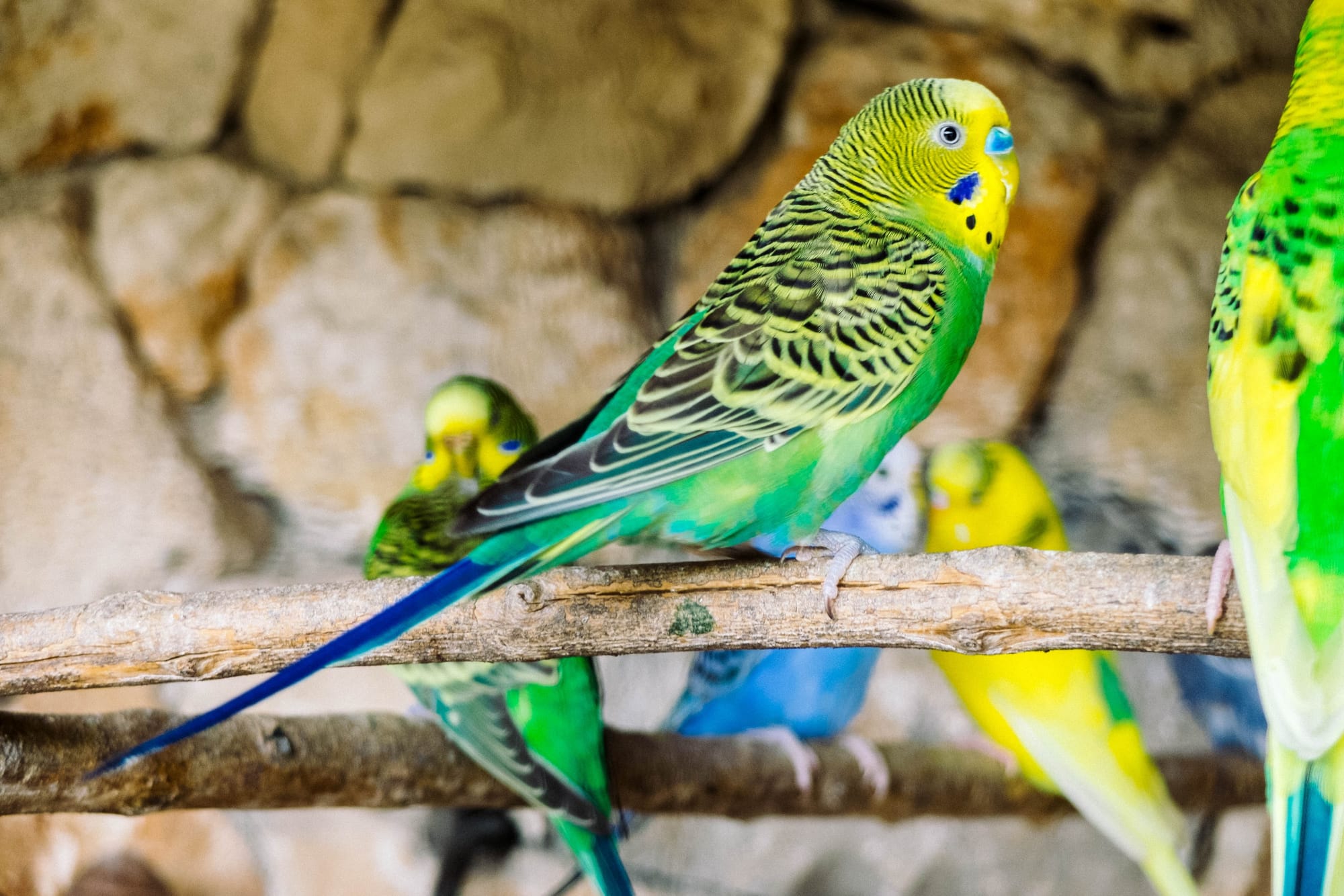
Summary
Choosing the right bird perches for parrots is essential for their health and happiness. Natural perches, such as those made from wood or cotton, provide a variety of textures and diameters that can help keep your bird's feet healthy. Regularly inspecting and replacing perches can prevent foot sores and other health issues. By providing a variety of perches and creating a comfortable environment, you can help ensure your parrot's well-being.
FAQ
What type of perches are best for parrots?
Natural wood perches and cotton rope perches are often the best choices for parrots. They provide a variety of textures and diameters that can help keep your bird's feet healthy and prevent overgrown nails.
How often should I replace my bird's perches?
It's important to regularly inspect your bird's perches and replace them as needed. Look for signs of wear and tear, such as cracks or splinters, and replace perches that are worn or dirty to prevent foot sores and other health issues.
Can I use any type of wood for natural perches?
Not all types of wood are safe for parrots. Avoid perches made from toxic woods or those treated with chemicals. Safe options include untreated hardwoods like apple, maple, and oak. Always ensure the wood is clean and free of pesticides.
When choosing the right bird perch for your feathered friend there are lots of options available on the market today—from natural wood to stainless steel to plastic varieties. Each type has its own benefits depending on what kind of environment you're providing for your pet bird as well as what type of material best suits their individual needs (for example, sensitive feet requiring some grip but not too much!). Ultimately, selecting the right type of bird perch will depend on both practicality and comfort level — but thankfully there are plenty of choices available no matter what kind of set up you're looking at! Try out different types until you find one that works perfectly for your pet friend! Tap the link below now to see our selection of bird perches!

